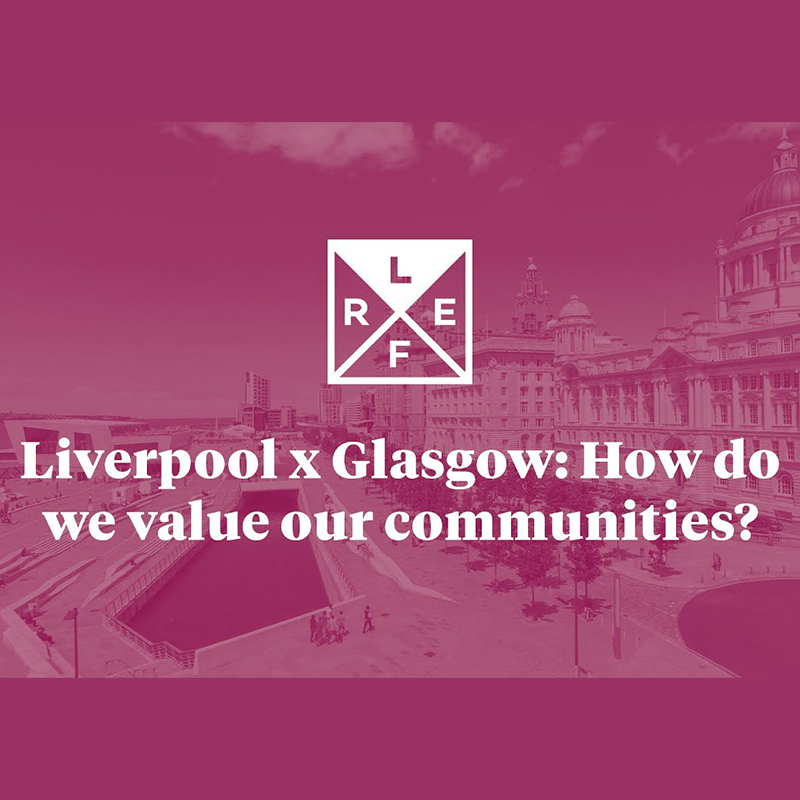Led by Greg Clark, the Liverpool City Mayor Joe Anderson and Glasgow City Leader Susan Aitken discuss the value of cities and their communities. City centres, public health, and the culture sector will be key factors in recovering from the COVID 19 pandemic.
What has made Liverpool and Glasgow resilient against the pandemic, and how can you make sure all communities are included and work together on the road to recovery?
Chaired by Greg Clark, issues discussed included inequality and improving public health, the importance of city entres, and the importance of culture for the recovery of cities.
Some key points discussed:
- COVID 19 has highlighted the social inequality in cities. Demographic groups already discriminated against have suffered the most from pandemic. Cities moving towards “Inclusive growth should look at growth not just for a city as a whole, but also for local communities.”
- Moving forward, ‘There is no sustainable city that without a city that reduces poverty. The social sustainability has become the big agenda. ‘
- Another issue this has highlighted in both Liverpool and Glasgow is the economic and social aspects of public ill health; asthma and obesity have impacted the comorbidity in cities. Resilience relies on people getting fitter and more active. ‘We’re moving towards a health-creating city’
- Public services proved absolutely pivotal in resilience during the pandemic. Shielding vulnerable people was enabled quickly with the support from various groups, and collaboration with the communities.
- ‘We have no choice but to create public spaces and public realm that actually put people’s health first and foremost, alongside economic systems that put people’s health first and foremost.’
- City centres are at risk without action to save them. More than 50 % of people questioned in Glasgow do not want to travel into the city centre now. ‘We need to make people feel safe to come into the city centre, to make sure there are still going to be reasons for them to keep coming in’.
- Local neighbourhoods have had a renaissance, but cannot support as many jobs as city centres. Without city centres , we would not just lose a major economic asset, but also the intangible ineffable aspect of the city.
- Cities depend on the culture scene to stay at the forefront as a global city. “The cultural sector has been a factor in resilience.” Both Glasgow and Liverpool as post-industrial cities reinvented themselves with the help of culture.
- Job retention schemes are needed for hospitality and culture sector especially. Without those industries, the city centres will not recover. They define our cities.
- Cities are meeting points, centres of open-mindedness and diversity. ‘It is essential for small nations to have cities to make sure we don’t turn inwards, that we keep open to the world’ It is essential for all nations.’
- On the positive side, during the pandemic, we have seen what cities are like without the same amount of traffic, and without the same levels of pollution. We now have to make sure we build on those changes and experiences to improve cities in the long run.
- Expanding cycling infrastructure have been on the agenda for a decade, but the last few months have doubled amount of bike lanes that were built in the last five years. ‘The experiences have warned us that the car isn’t king, people are.’
- Cities can be drivers for economic recovery, but education and young people are important part in driving the knowledge economy. How do we attract international students back to our cities after the pandemic?
CHAIR:
- Prof. Greg Clark CBE, Global Advisor, Chair, Author
PANEL SPEAKERS:
- Cllr Susan Aitken, Leader, Glasgow City Council
- Mayor Joe Anderson, City Mayor, Liverpool City Council
